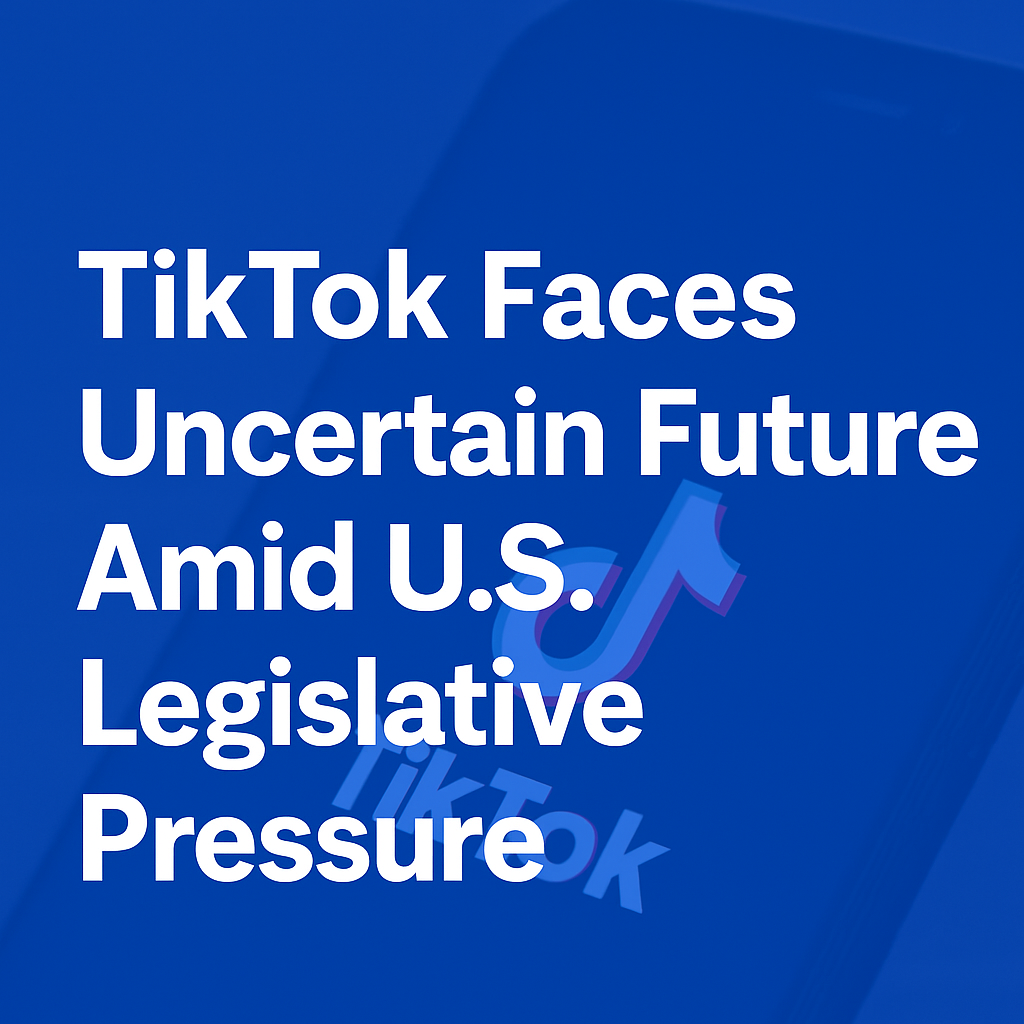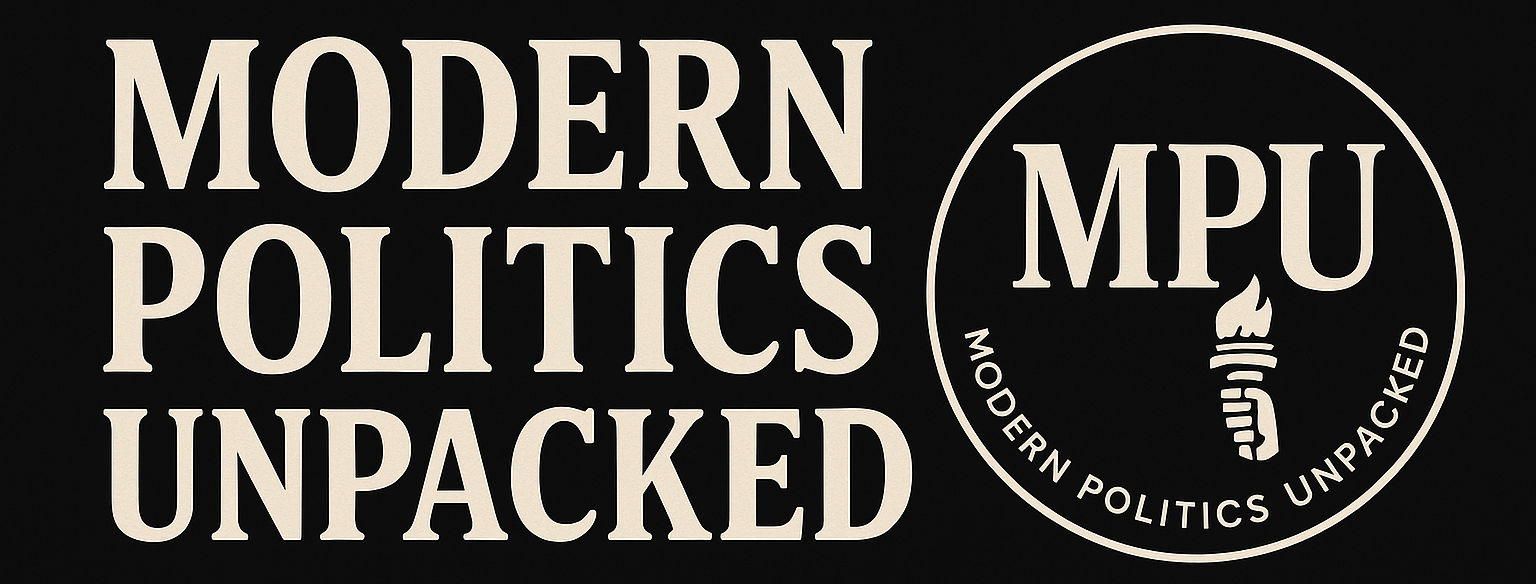TikTok Faces Uncertain Future Amid U.S. Legislative Pressure

In the span of just a few years, TikTok has transformed from a niche lip-syncing app into a global cultural powerhouse. With over 170 million users in the United States alone, it’s not just a social media platform—it’s an economic engine, a political megaphone, and for many, a primary source of news and entertainment. But in Washington, it’s also become a perceived national security threat.
Now, a new bipartisan law threatens to either force a sale of TikTok’s U.S. operations or effectively ban the platform nationwide. The stakes are enormous—not only for TikTok and its Chinese parent company ByteDance, but also for millions of content creators, businesses, and users across the country.
This article unpacks how we got here, what’s in the new law, the legal and political battles ahead, and why this case is about much more than just one app.
A Timeline of Escalation: How TikTok Ended Up in Washington’s Crosshairs
The idea of banning TikTok is not new—but it’s never gotten this far. Here's a timeline of key developments:
- 2019: U.S. officials begin warning about ByteDance’s data practices, citing national security concerns.
- August 2020: Then-President Donald Trump signs an executive order attempting to ban TikTok unless it is sold to a U.S. company. Federal courts block the ban.
- June 2021: President Joe Biden revokes Trump’s executive order but launches a broader review of apps controlled by foreign adversaries.
- March 2023: CEO Shou Zi Chew testifies before Congress, facing bipartisan grilling about TikTok’s data privacy, content moderation, and ties to the Chinese government.
- April 2024: The House passes the Protecting Americans from Foreign Adversary Controlled Applications Act, which mandates ByteDance divest TikTok or face a ban.
- April 2025: After Senate approval, President Trump signs the bill into law, giving ByteDance up to 12 months to sell TikTok to a U.S.-approved buyer (source).
What the Law Says: A “Sale or Ban” Mandate
The newly signed law requires ByteDance to divest from TikTok within a designated period—initially 180 days, extendable by another 90-day grace period at the president’s discretion. If it fails to do so, U.S. app stores and web hosts would be required to block access to TikTok.
Key Provisions:
- Applies to apps “controlled by foreign adversaries,” primarily targeting TikTok.
- Grants the president power to identify other apps that pose national security risks.
- Empowers the Justice Department to enforce compliance.
The legislation enjoyed rare bipartisan support in both chambers of Congress, highlighting the depth of concern in Washington over China’s perceived tech encroachment.
The National Security Argument: Justified or Political Theater?
Lawmakers backing the bill say it’s about protecting American users from foreign surveillance. They argue that TikTok’s data—location, device information, viewing habits—could theoretically be accessed by the Chinese Communist Party (CCP) under China’s national security laws.
Senator Marco Rubio (R-FL), a longtime China hawk, called the platform “a Trojan horse for the CCP” (source). Supporters also worry TikTok’s algorithm could be manipulated to sway American public opinion on sensitive topics, from elections to foreign policy.
But critics argue that no definitive evidence has been presented showing TikTok has misused U.S. user data. Moreover, they say the law sets a dangerous precedent for government control over digital expression.
The American Civil Liberties Union (ACLU) warned the law violates the First Amendment, calling it “an act of censorship dressed up as a national security measure” (source).
TikTok’s Response: Legal Challenge Underway
TikTok has not taken the legislation quietly. The company is expected to challenge the law in federal court on both constitutional and administrative grounds. Key elements of their argument include:
- Free Speech Violation: TikTok argues that banning the app curtails the speech of millions of American users.
- Vague Legal Standards: Critics say the law provides insufficient procedural safeguards or evidence requirements.
- Discriminatory Targeting: As only one company is effectively impacted, TikTok may argue the law unfairly singles it out without due process.
TikTok has also intensified its public relations campaign, warning users that the platform may disappear unless lawmakers reverse course. It launched an in-app message urging users to call their representatives and oppose the bill—prompting rebukes from some members of Congress.
Can TikTok Be Sold—and Who Would Buy It?
The law’s core demand is that TikTok be sold to a U.S.-approved buyer. But that’s far from simple.
Challenges to a Sale:
- Chinese Approval: Beijing has signaled it will oppose any forced divestiture, potentially invoking export controls to block sale of TikTok’s algorithm (source).
- Algorithm Complexity: TikTok’s personalization engine is what makes the app so addictive. Without it, any sale might be worthless.
- Valuation Issues: TikTok’s U.S. business alone could be worth hundreds of billions, deterring potential buyers.
Possible Suitors (Speculative):
- Oracle and Walmart (who had previously attempted a partnership)
- Microsoft (which attempted a purchase in 2020)
- Elon Musk and X (rumored, unconfirmed)
- Private equity consortia
Any acquisition would require national security vetting by the Committee on Foreign Investment in the United States (CFIUS).
The User Impact: Creators and Small Businesses in Limbo
Beyond geopolitics and corporate boardrooms, the people who stand to lose the most from a ban are everyday creators and small businesses. TikTok is not just a platform for dance trends—it’s a tool for:
- Microbusinesses marketing their products
- Artists and musicians building audiences
- Civic groups engaging younger voters
- Workers and unions mobilizing online
According to Oxford Economics, TikTok supported $14.7 billion in small business revenue in the U.S. in 2023 alone (source).
Case in Point:
- Creators like Elyse Myers, Tabitha Brown, and Hank Green have used the platform to launch books, shows, and businesses.
- Young political activists across the spectrum—from climate campaigners to Trump supporters—rely on the app to mobilize.
A sudden ban could erase years of work, audiences, and revenue streams.
International Fallout: A Global Battle Over Tech Sovereignty
The TikTok case is part of a broader global reckoning over data, borders, and digital power. Across the world, countries are taking steps to protect—or control—their digital ecosystems:
- India permanently banned TikTok in 2020 amid tensions with China.
- European Union regulators are pressing for transparency in TikTok’s algorithms and data practices under the Digital Services Act.
- China has long blocked U.S. platforms like Facebook, YouTube, and Instagram—now the U.S. is considering reciprocity.
The U.S. ban would raise the stakes for other Chinese-owned apps like CapCut, Temu, and Shein, all of which are under increased scrutiny.
Is It Really About National Security—or U.S.-China Competition?
While lawmakers invoke national security, many analysts argue the TikTok controversy is also a proxy for broader U.S.-China tensions. These include:
- Trade wars and tariffs
- Tech innovation competition
- AI and data sovereignty
- Ideological divides over censorship and surveillance
By pressuring TikTok, some policymakers may be sending a signal to Beijing that the U.S. will no longer tolerate unchecked Chinese influence in American consumer tech.
But critics warn that escalating the tech war could lead to further digital fragmentation, reduced innovation, and retaliatory bans that hurt American companies abroad.
What Happens Next?
The road ahead will be shaped by courts, corporate decisions, and international diplomacy. Scenarios include:
- Sale Approved: A U.S. company buys TikTok, and the app continues under new management—albeit possibly with significant algorithm changes.
- Legal Victory for TikTok: A federal court rules the law unconstitutional, delaying or blocking enforcement.
- Outright Ban: If no buyer emerges and courts uphold the law, TikTok disappears from app stores in the U.S.
- Geopolitical Retaliation: China restricts U.S. firms, escalating a broader tech cold war.
In any case, the next 6–12 months will be pivotal.
Conclusion: A Precedent for the Digital Age
The battle over TikTok is not just about one app—it’s a test case for how democracies regulate global technology in the 21st century. Can governments balance national security with free expression? How do we ensure user data is protected without stifling innovation?
Whatever the outcome, the TikTok saga is reshaping digital governance, U.S.-China relations, and the rights of American consumers in a connected world. As one lawmaker put it, “This isn’t just about TikTok—it’s about who gets to shape the internet of the future.”
